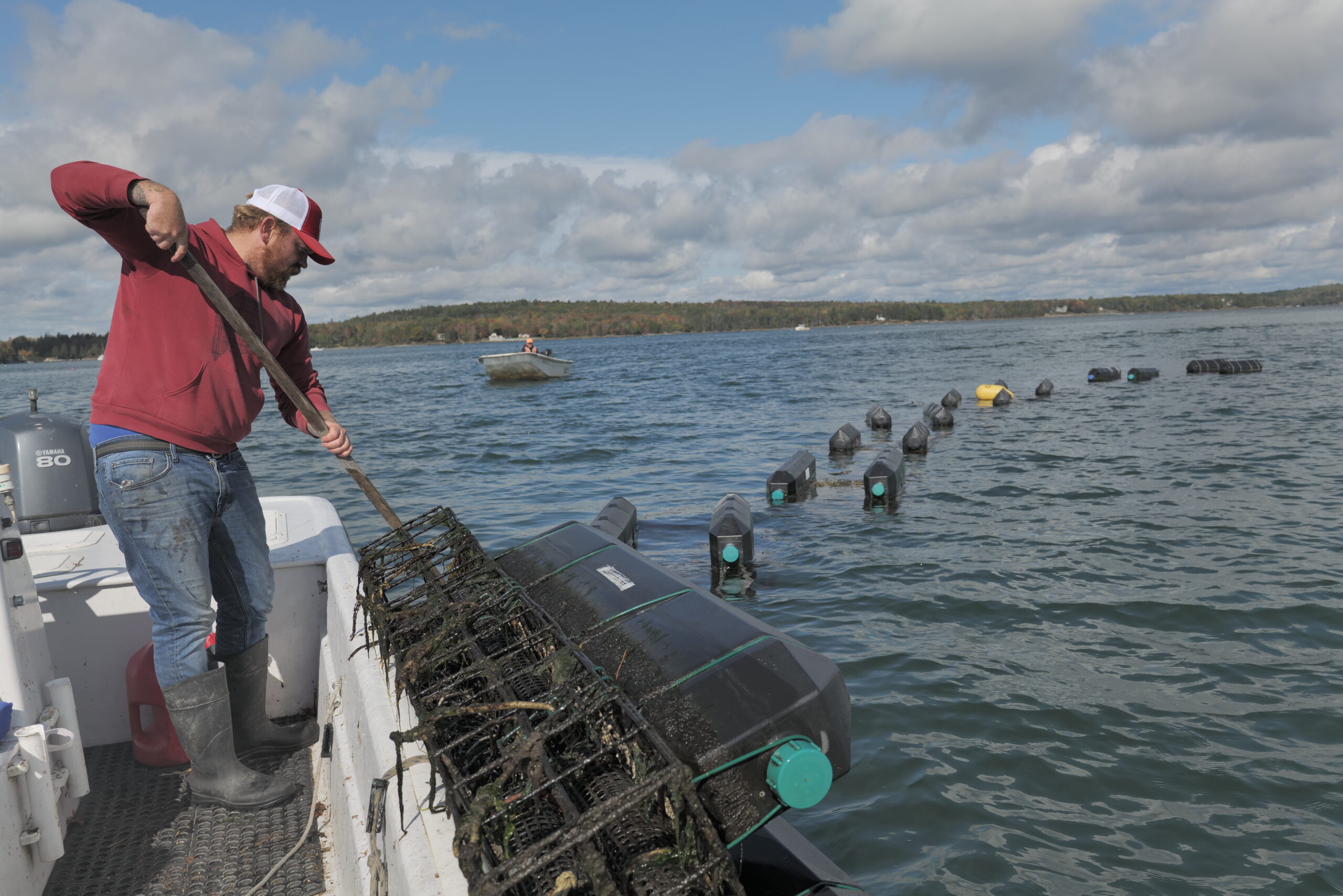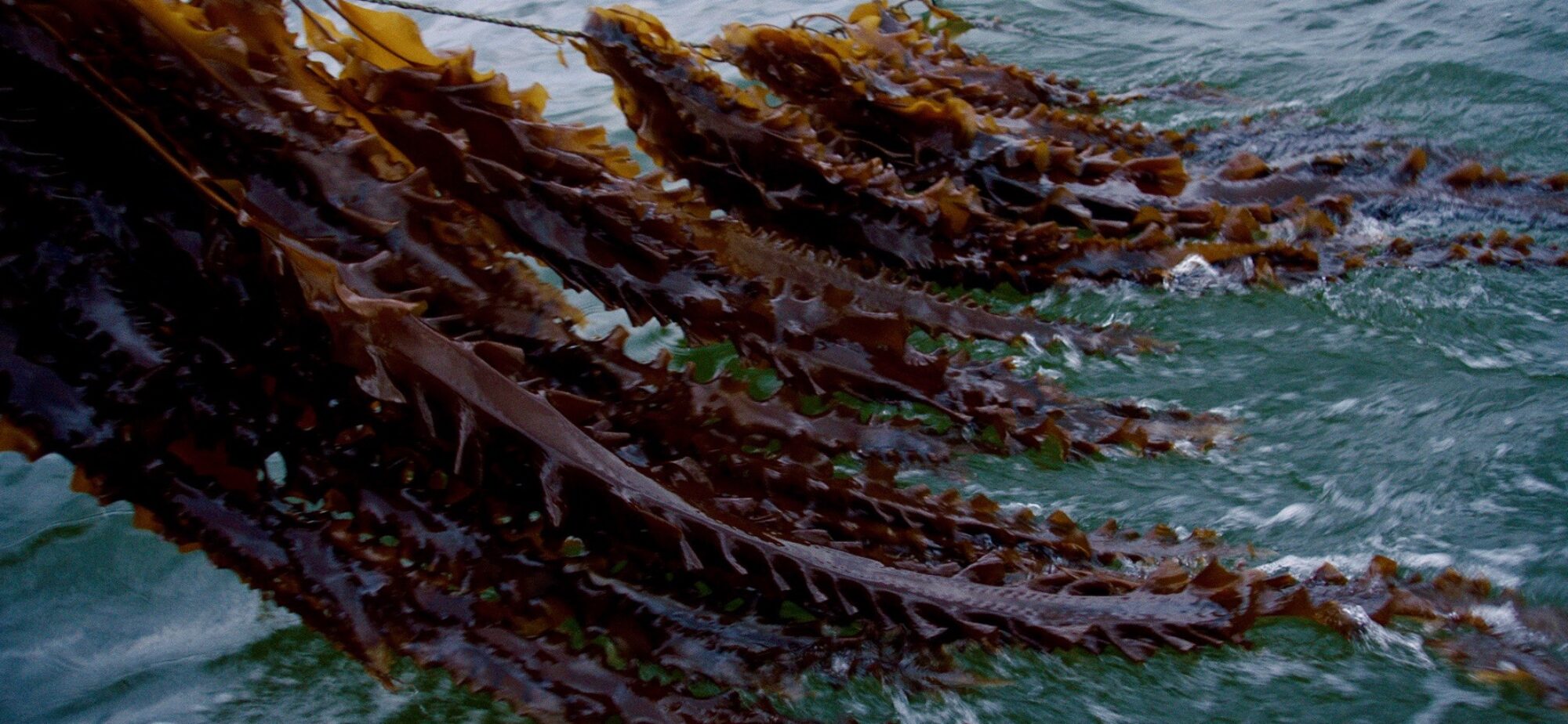
HALLOWELL, Maine, November 21, 2022 – The Maine Aquaculture Association (MAA) today announced it has been awarded a 2022 Beginning Farmer and Rancher Development Program (BFRDP) grant from the U.S. Department of Agriculture’s (USDA) National Institute of Food and Agriculture (NIFA). Maine Aquaculture Association was one of 45 organizations and institutions across the country that teach and train beginning farmers awarded the prestigious, annual grant.
USDA’s NIFA will invest over $24 million to train the next generation of U.S. farmers and ranchers. The MAA will receive a grant in the amount of $91,000 for its project, Leading Maine’s Beginning Aquaculture Farmers to a Sustainable Business Future.
“Maine’s cold, clean waters are ideal for farming some of the freshest and most sustainable food in the world,” said Sebastian Belle, Executive Director, Maine Aquaculture Association. “We are pleased to receive this important grant from NIFA to continue training sea farmers and develop a sustainable, viable aquaculture sector.”
“The Maine Aquaculture Association put forth a meaningful proposal to support current and future generations of ocean farmers,” said USDA-NIFA National Program Leader for small farms, Denis Ebodaghe. “This project proposal came from the heart and is in line with exactly the kind of mission-driven programming we aim to support.”
The MAA’s Beginning Farmer and Rancher Development Program began in 2021 with a pilot project. Thanks to the 2022 NIFA grant, MAA will build upon the pilot and extend the program for three years. To date, the project has provided more than 70 beginning Maine aquaculture farmers with in-depth training and updated resources around business planning, risk management, marketing, diversification, and benchmarking.
“The business plan MAA put together is by far the most effective tool I’ve used for inventory tracking and projections,” said Graham Platner, an oyster farmer from Sullivan, Maine. “We have used several other similar products, but they tended to be either too vaguely built or not specific enough to Maine oyster growing to be of any real use. The support we have received from the MAA has allowed us to more effectively track and manage the farm,” he said.
Prior to attaining pilot status, the MAA’s Leading Maine’s Beginning Aquaculture Farmers to a Sustainable Business Future, received initial support from FocusMaine and Northeast Extension Risk Management Education (NERME).
“Maine Aquaculture Association’s training program will help growers improve their farming successes and be well-positioned for responsible, sustainable growth for the future of Maine’s working waterfront,” said Christian Brayden, Project Manager, Maine Aquaculture Association.
“Like their terrestrial counterparts, sea farmers face challenges including economic risk, climate, and regulations. Unlike land-based farming, aquaculture is a young and dynamic sector with meaningful potential for development of best practices and vibrant growth.” continued Brayden.
Through Leading Maine’s Beginning Aquaculture Farmers to a Sustainable Business Future, MAA expects to provide 75 beginning farmers with hands-on training and resources. 10 new farms are expected to launch on Maine’s working waterfront from Kittery to Eastport growing diverse species.
According to the Maine Aquaculture Association, aquaculture in Maine is among the most diverse sea farming sectors in the nation, producing more than 25 diverse species of finfish, shellfish and sea vegetables, more than any other U.S. state. Maine aquaculture has enjoyed responsible growth over the last 20 years at an average rate of 2 percent. Less than 1% of Maine’s coastal waters are used for aquaculture. More than 99% of Maine sea farms are family-owned.
For more information about Leading Maine’s Beginning Aquaculture Farmers to a Sustainable Business Future and facts about Maine Aquaculture, please visit https://maineaqua.org/.
Education and on-farm training has long been a component of Maine Aquaculture Association as part of its mission to aid producers in the promotion of aquaculture products, In addition to the NIFA grant for Leading Maine’s Beginning Aquaculture Farmers to a Sustainable Business Future, on November 15, Maine Aquaculture Association (MAA) and Gulf of Maine Research Institute (GMRI) announced the launch of the first state-wide Aquaculture Apprenticeship Program in the U.S., which will provide on-farm training and education for six Maine high school graduates beginning in 2023. The program leverages partnerships with Maine aquaculture farms and is supported by the USDA National Institute of Food and Agriculture. Other partners on the project include Educate Maine, the Maine Department of Labor, and Southern Maine Community College.
About the Maine Aquaculture Association
The Maine Aquaculture Association (MAA) est. 1978, is a nonprofit trade association that advocates for and unites Maine’s finfish, shellfish, and sea vegetable farmers in collaboration with commercial fishing colleagues. MAA’s mission is to support the state’s aquatic growers in developing economically and environmentally sustainable business practices, to promote the benefits of aquaculture in the local food system, and to preserve Maine’s heritage of a vibrant working waterfront.
Twitter | Facebook | Instagram | LinkedIn
